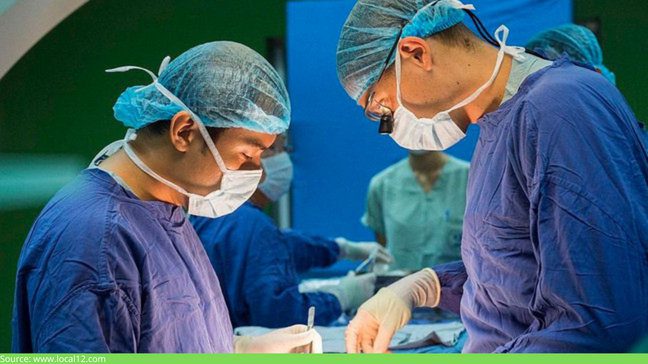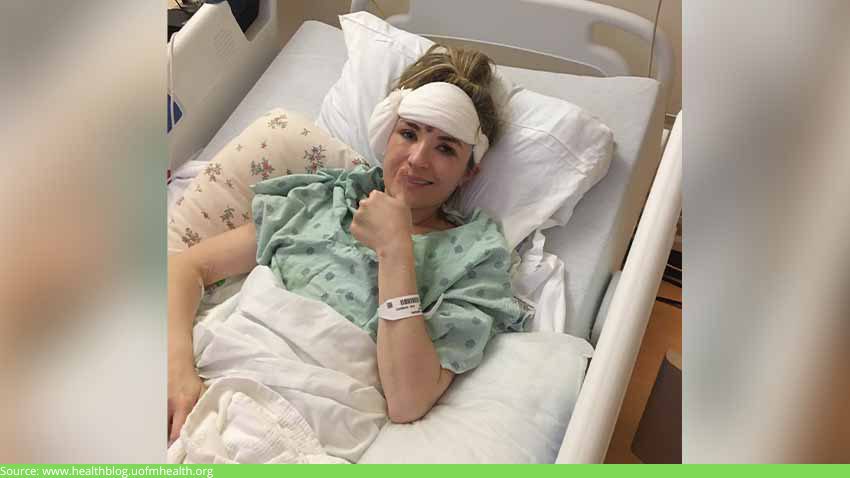A brain tumor is an abnormal growth of cells in the brain. Brain tumors can be either benign (noncancerous) or malignant (cancerous).
It is a highly serious illness that targets the functions of your brain. The symptoms change according to the kind of tumor you have. However, the most prevalent adverse reactions include memory loss, issues with physical abilities, migraines, depression, and speech abnormalities.
The last several years have seen advancements in the treatment of brain tumors. Dr. Gurneet Singh Sawhney, an eminent neurosurgeon in Mumbai, keeps up-to-date with the latest treatment options for brain tumors to improve the quality of his patient’s life.
If you or a loved one is about to undergo brain tumor surgery, it is only natural that you will have questions about the same. Read on to find answers to some frequently asked questions about brain tumor surgery.
Is brain tumor hereditary?
Some disorders, like neurofibromatosis and tuberous sclerosis, have a genetic component and can result in brain tumors. But there is a very slight possibility for brain tumors to be genetically inherited, as most brain tumors are not.
As per the research and statistical data that is available so far, only about 5% of this disease may be related to hereditary conditions or factors.
Is my brain tumor cancerous or benign?
Your brain tumor specialist will provide in-depth information about the type of brain tumor before the surgery.
Should I fast the night before my surgery?
Specific instructions are typically provided during the visit before the scheduled surgery, but generally speaking, you should not be eating or drinking after midnight. You could consume a small snack before bedtime to curb your appetite the morning of the procedure.
Dr. Gurneet Singh Sawhney, often called the best brain surgeon in Mumbai, adds that on the day of the procedure, you may be allowed to consume water until 2 hours prior to the scheduled arrival time.
How long will the surgery take?

A brain tumor surgery in Mumbai may take about 4 – 6 hrs in both conventional and Awake craniotomy. It’s lesser in awake craniotomy This is inclusive of pre-op, peri-op, and post-op durations.
Neurologic function is the main post-operative worry for people who have undergone brain surgery. Because of this, explains Dr. Gurneet Singh Sawhney, a well-known brain tumor specialist in Mumbai, it becomes crucial that you are awake as soon as possible following surgery so that your surgeon can monitor your neurologic function.
The surgeon will speak with you and ask questions in order to determine your ability to comply with basic instructions like holding up 2 fingers or moving your toes.
Will I experience pain after the surgery?
Since the head contains very few pain nerve endings, pain is typically minimal. Even so, you may have headaches and other discomforts in the previously affected area. Usually, non-narcotic medications can also be used to treat this, and narcotic drugs can be employed when necessary.
Your medical staff will administer medication for pain through your IV until you are able to tolerate tablets.
How long will I be hospitalized?
Brain tumor patients who have a craniotomy and have no complications are often released after 2 nights (3 hospital days). Patients who experience post-operative complications following surgery might need to stay longer.
What should I expect post-surgery?
After a brain tumor operation, majority of the patients have a quick recovery and are able to go home in a few days. In some cases, patients may require short-term rehabilitation post-surgery.
Regarding activities, you should refrain from any strenuous activity for at least 4 weeks. This includes:
- heavy lifting (greater than 2.5 kg / 5 pounds)
- running
- exercising
- exerting extra pressure during bowel movements
Dr. Gurneet Singh Sawhney, often regarded as the best neurosurgeon in India, frequently creates pre-surgery and post-surgery diet plans to help patients manage constipation.
When to call the doctor
Call your doctor right away if you have any of the following signs or symptoms:
- Any fever that exceeds 101.5
- Any new tremors or weakness in your legs or arms
- Any alteration in mental state
- Any seizure activity
- Any leakage coming from the wound
- Headache that worsens and is not relieved by any medication
- Increased redness/swelling at the site of the incision
- Redness/pain in the leg
- Increase in confusion
Conclusion

Getting diagnosed with a brain tumor can be a very traumatic experience for both the patient and their loved ones. Many brain tumor patients suffer from headaches, seizures, and/or loss of cognitive function. Some brain tumor patients also experience nausea and vomiting.
Overall, surgery to remove a brain tumor is a safe and effective treatment. The procedure carries a small risk of complications, but these are usually minor and temporary. Recovery from surgery is typically quick, and most patients are able to return to their normal activities within a few days.
The quality of life for patients with this fatal condition is increasing thanks to both new and established treatments for brain tumors. If you or a loved one has been diagnosed with a brain tumor, please do not hesitate to consult with India’s top-notch neurosurgeon, Dr. Gurneet Singh Sawhney, for safe, reliable, and effective treatment options.
